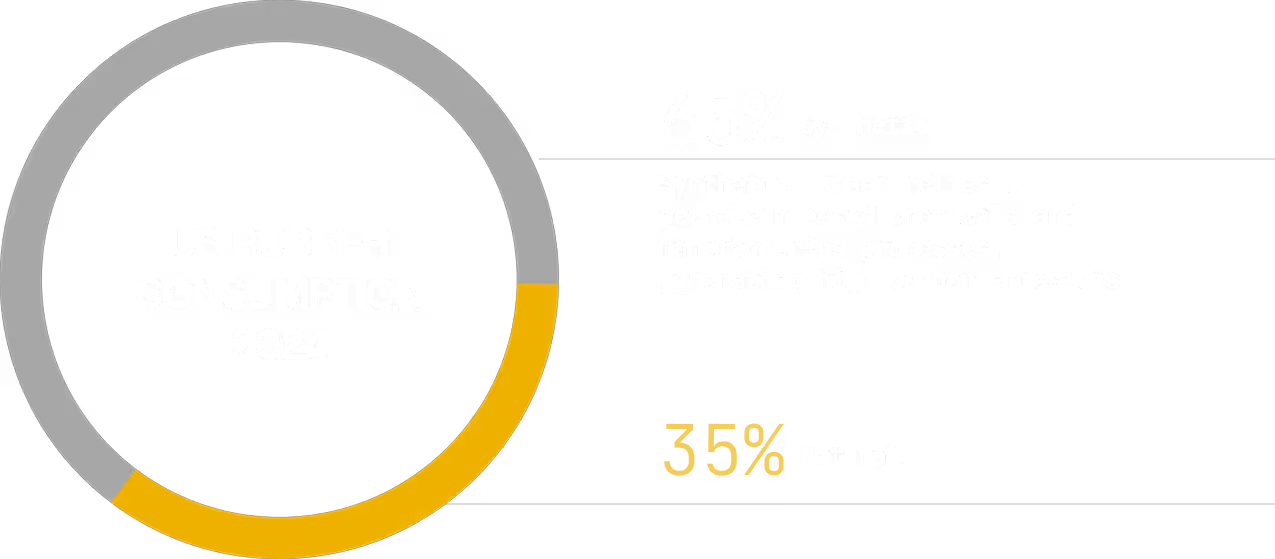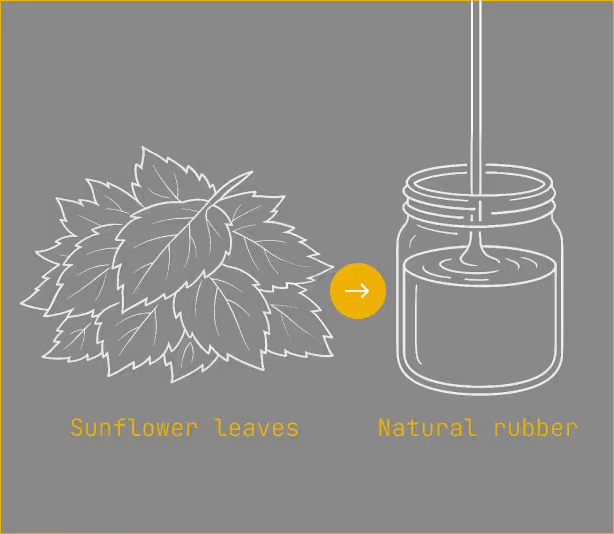Sunflower reduces the supply chain's vulnerability to disease or geopolitical conflict

Converts agricultural waste (sunflower leaves) into a valuable product

Reduces carbon footprint and tropical deforestation

Avoids unfair labor practices and detrimental forestry practices



SUNFLOWER RUBBER CAN SCALE RAPIDLY as it is already widely farmed in America
Mainly grown across North Dakota, South Dakota, Minnesota, Kansas, and Colorado, while Nebraska, Wyoming, Texas, California, and Washington contribute smaller amounts. These regions provide the ideal climate and soil for both oilseed and confectionary sunflower varieties. Sunflower is a versatile rotation crop where rainfall is limited.


Reduces toxic emissions, waste streams and carbon footprint
Sunflowers contribute to environmental sustainability by capturing carbon, enhancing soil health, and scavenging residual nutrients, particularly nitrates.


Converts agricultural waste (sunflower leaves) into a valuable product
Sunflower farming generates several tons of crop residue, which includes leaves. Edison has found a way to transform this byproduct into liquid rubber, driving economic and sustainable benefits.
